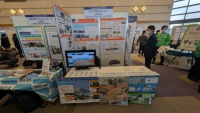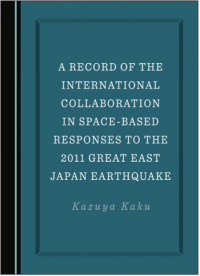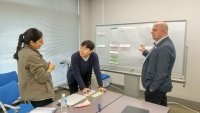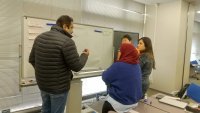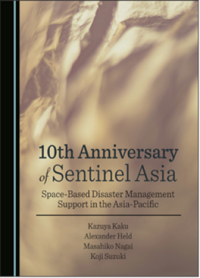7-9 March 2025
The Sendai Framework for Disaster Risk Reduction (SFDRR), a set of guidelines for disaster risk reduction-related initiatives, was formulated at the Third World Conference on Disaster Risk Reduction in March 2015. The World Bosai Forum has been held every two years since 2017 as one of the activities to promote it, bringing together all sectors -industry, government and academia, both domestic and international, to discuss DRR measures. The World Bosai Forum 2025 focused on the concepts of "Increasing Disaster Risks Due to Global Warming and Climate Change" and "Future Prospects."
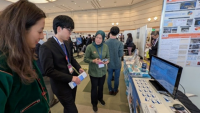 ADRC had a booth at the EXPO site in the Forum and introduced the ADRC's efforts such as promotion of DRR in Asia in cooperation with various stakeholders, advancement of DRR measures using ICT (for example, QZSS, a disaster risk information transmission system), and disaster information sharing via mobile phones using GIS and SNS as ADRC conducted projects in Mt. Fuji and Malaysia. In addition, six VRs from member countries (India, Republic of Korea, Turkiye, Fiji, Malaysia and Maldives) introduced the disaster situation and disaster risk management systems of their countries.
ADRC had a booth at the EXPO site in the Forum and introduced the ADRC's efforts such as promotion of DRR in Asia in cooperation with various stakeholders, advancement of DRR measures using ICT (for example, QZSS, a disaster risk information transmission system), and disaster information sharing via mobile phones using GIS and SNS as ADRC conducted projects in Mt. Fuji and Malaysia. In addition, six VRs from member countries (India, Republic of Korea, Turkiye, Fiji, Malaysia and Maldives) introduced the disaster situation and disaster risk management systems of their countries.
At the Forum, 45 organisations exhibited their own efforts and activities for DRR. Many people involved in DRR visited the ADRC booth, including representatives from JICA, universities and other academic institutions, private companies, NGOs and foreign exchange students, and the ADRC researchers and visiting researchers gave explanations and exchanged opinions with them.
(2025/03/16 15:00)


